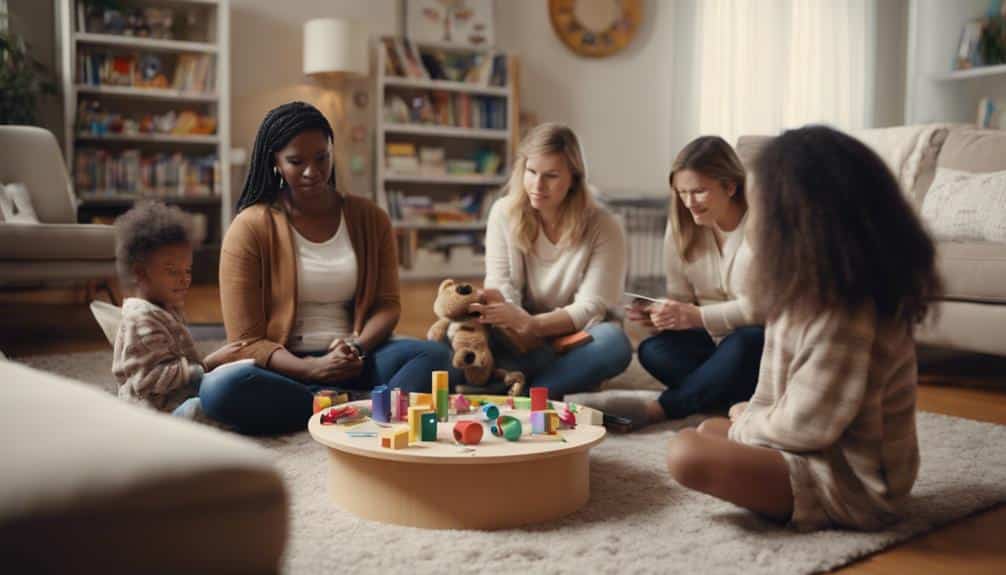Therapy services play an integral role in addressing diverse challenges that individuals and families encounter throughout life. From personal struggles to relational conflicts, therapy offers structured support and strategies for growth. This article examines how individual counseling, family therapy, and progress tracking methods can offer personalized avenues for improvement.
How Does Individual Counseling Help?
Individual counseling is designed to help people address personal issues in a thoughtful and guided way. It provides a safe and private environment where individuals can express their concerns openly. Through regular sessions, clients can explore their emotions, behaviors, and thought patterns with a qualified professional who helps them find practical solutions.
One of the key benefits of individual counseling is the focused attention given to each client. Therapists work closely with clients to understand their specific needs, whether they relate to stress, career challenges, or other personal matters. By building a trusting relationship, clients feel supported as they work toward achieving their goals.
Therapists often use evidence-based techniques during individual counseling sessions. These methods promote self-awareness and provide tools to navigate life’s ups and downs. Over time, individuals can develop improved problem-solving skills and enhance their overall well-being.
What Benefits Come From Family Therapy?
Family therapy services address conflicts and miscommunications within family units. It focuses on improving dynamics by fostering better communication and understanding among family members. Through guided discussions, families can learn to work through disagreements constructively.
A significant benefit of family therapy is its ability to create a unified approach to resolving issues. Here are some specific advantages:
- Improved Communication: Families can develop healthier ways to express thoughts and emotions, reducing misunderstandings.
- Conflict Resolution Skills: Therapy helps families identify the root causes of disputes and equips them with techniques to resolve disagreements calmly.
- Stronger Relationships: Strengthened bonds often emerge when family members learn to support one another effectively.
- Perspective Sharing: Family therapy enables each person to share their viewpoint in a safe space, fostering empathy and understanding.
The collaborative setting of family therapy allows all voices to be heard. It enables families to identify shared goals, which can deepen trust and cooperation. These sessions are particularly beneficial for navigating significant life transitions or periods of stress.
How Is Progress Measured in Therapy?
The Value of Tracking Progress in Therapy
Tracking progress is necessary in any therapy service. Clear methods enable clients and therapists to assess how well goals are being met and adjust their approaches as required. This verifies therapy remains dynamic and responsive to changing needs.
Goal-Setting as a Foundation
Therapists often begin by collaborating with clients to define specific, achievable objectives that address the client’s challenges and desired outcomes. These goals provide a clear foundation for measuring progress, and regular reviews help assess improvements and identify areas that need adjustment.
Self-Assessments and Feedback
Progress is frequently monitored through self-assessments and client feedback. Clients may be asked to complete surveys or share their perspectives during sessions to help evaluate their progress. These tools help uncover patterns, identify areas for growth, and highlight obstacles that still need to be addressed. Therapists also observe changes in behavior, interactions, or thought processes as additional indicators of progress.
Celebrating Milestones
Milestones achieved during therapy act as benchmarks for success. These can include improved communication, reduced stress, or increased self-confidence. Tracking these achievements helps therapists and clients celebrate progress and stay motivated to work toward long-term goals.
Explore Therapy Services
Therapy services provide valuable pathways for individuals and families to address challenges, resolve conflicts, and foster healthier relationships. Whether through individual counseling or family therapy, professional guidance equips people with tools to manage life’s complexities. If you are ready to take the next step, explore therapy services available near you and discover the benefits of professional support tailored to your needs.

